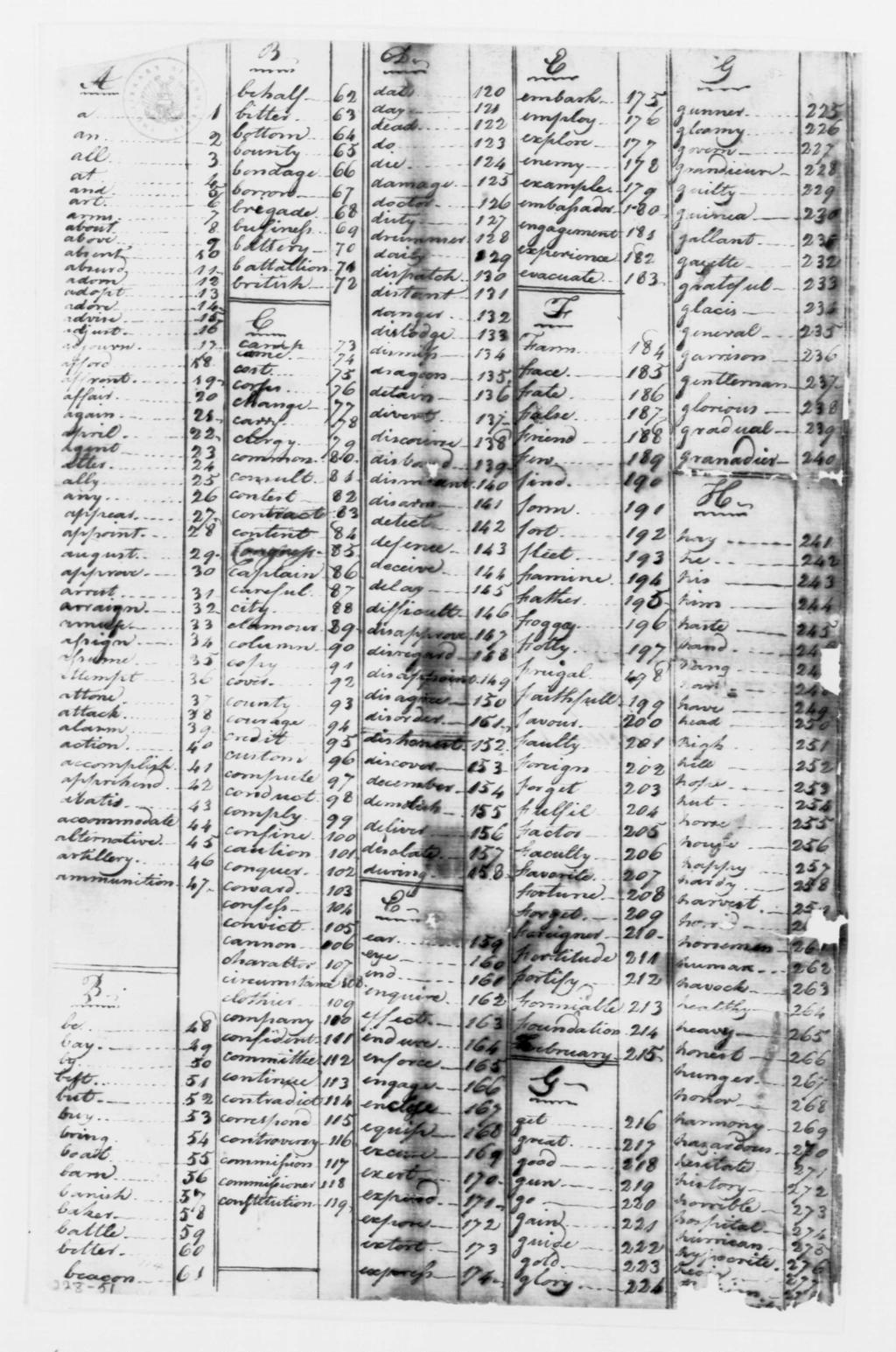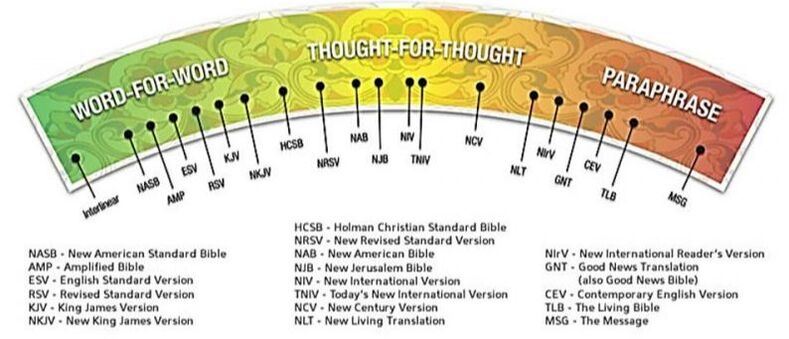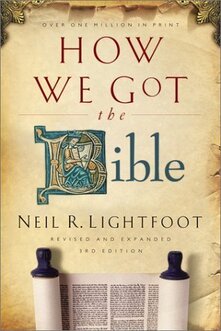beginning at 7:00 pm on Wednesdays.
at the church of Christ in Carthage, Missouri, south of the Ford dealership
PLEASE JOIN US!
Washington's Culper Spy Ring
| George Washington (Code name: 711) is one of the United States' favorite generals. He was the first commander-in-chief. In continued studies of his effectiveness as a military leader, we find one of Washington's strengths to be his acceptance and strategic use of a spy network. Five spies, in particular, risked everything to serve the cause of liberty. Major George Beckwith, Chief of British Intelligence during the Revolutionary War, remarked, "Washington really did not outfight the British; he simply outspied us." One primary source we could consider is the Culper Code Book. Mount Vernon's website also provides a more readable copy. Washington's spies had to be acquainted with the code in order to communicate secret information within the network. Try your hand at writing a letter using the Culper Code.
|
Bible Languages
| | | |
Words, Thoughts, and Phrases
Our focus for this study hinges on answering these two big questions. The goal is to get closer to the answers each week in our class.
Is the Bible accurate and dependable?
In this lesson, we delve into more recent translations of the Bible with a discussion of Chapter 17 in How We Got the Bible.
- What considerations are important in choosing a modern English translation of the Bible?
- Is it more important that our preferred translation be easy to understand? Is it more important that it convey the intent of the Spirit? Is there a way to balance the two?
- Do you have multiple versions of the Bible? Do you use different translations for Bible class, worship, and personal study? Why?
- Have you found any versions that fail to pass the test? Which ones? Why?
- Why didn't the Holy Spirit just write the Bible in English in the first place?
Translation VariablesChapter 17 of the Neil Lightfoot book, How We Got the Bible, is titled "Modern Translations of the English Bible". It begins by presenting some of the "weaknesses" of the King James Version. Let's discuss these as they are presented in the text. Other translations are also presented in this chapter, with distinctions being necessary between British English and American English. What from the text stands out for each of the following? |
|
|
|
|
|
|
|
What are some of the variables in play when people, publishers, or groups decide a different or new translation is needed?
Word-for-Word, Literally
The late Hugo McCord (1911-2004) provides some commentary concerning a literal, word-for-word approach to translating the Bible. "Is a literal translation possible?" he asks.
The thought of a word-for-word translation initially appears attractive, but right away the idea has to be discarded. Immediately, as one begins such, he retreats. For example, Matthew 1:18 would look like this:
of her having been betrothed to the mother of him of Mary to Joseph before to come together them she was found in womb having the Spirit Holy.
Not only awkward but confusing is a word-for-word rendering of Luke 3:14:
They were asking and him and soldiering saying, what shall we do and we? And he said to them, none shake through nor figshine, and be satisfied with boiled food bought of you.
A word-for-word translation of 2 Corinthians 9:10 is unintelligible:
The one and chorus-leading seed to the sowing and bread into food a chorus he will lead.
...A literal translation, no matter how much admired and desired, would be unintelligible.
All translations paraphrase...
Paraphrases conveying the thought of the Greek are not wrong, but sometimes the thought is changed: "Easter" (Acts 12:4, KJV); "Drink ye all of it" (Matthew 26:27, KJV); "horses' bridles in their mouths" (James 3:3, ASV); "women" instead of "wives" (1 Timothy 3:11, ASV); "deaconess" (Romans 16:1, RSV); "layman" (Numbers 16:40, NASB); "you are Peter the Rock" (Matthew 16:18, NEB); "the word was a god" (John 1:1, NWT); and "sinful nature" (Romans 8:3,4,5,8,9,12,13, NIV).
Vocabulary Issues
| In efforts to render as accurate a translation as possible Hugo McCord eliminated some of the common vocabulary that has found its way into so many versions that came before his. Let's divide our group and conquer two of the common words that he eliminated: church and baptism. The readings for two words (taken from McCord's Everlasting Gospel) may be downloaded in the file here (right). |
| ||
Compare and Contrast
| New American Standard Bible vs. The Message
| King James Version vs. The Message
English Standard Version vs. The Message
|
We contend that the Bible and everything it contains is supported by:
|
|
|
Should faith alone be enough to drive you to drive you to your knees? Is "blind" faith a stronger kind of faith? If so, then why did God provide so much evidence?

















































